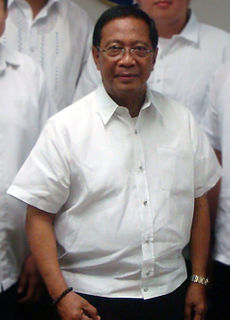A Quote by Alex Gibney
When the producers of 'Why Poverty?' came to me to do a film about poverty in the United States, I asked if I could do a film about wealth instead. I tend to make films about perpetrators, rather than victims.
Related Quotes
Poverty is a strange and elusive thing. ... I condemn poverty and I advocate it; poverty is simple and complex at once; it is a social phenomenon and a personal matter. Poverty is an elusive thing, and a paradoxical one. We need always to be thinking and writing about it, for if we are not among its victims its reality fades from us. We must talk about poverty because people insulated by their own comfort lose sight of it.
First, there has been a lot of interest in The Drive-in, but, alas, it hasn't actually come to fruition. Maybe soon. Don really got Bubba and I didn't think it could be a film. I thought it was too odd to make it to film. He asked me to do the screenplay, but I declined. I didn't see that it could be a screenplay but he wrote one and proved me wrong. He was always considerate about what I thought about the film and the story's presentation, but in the end, he's the director and he had to make decisions. All good ones.
I often find in the film world, that it's very self-referring. If you talk to someone about films, they talk about them in terms of other films - rather than as something that happened to them in their life. And I'm really keen to get back to film as a reference to real things, not necessarily to other films.
It is this idea 'decency' should be attached to wealth -and 'indecency'' to poverty - that forms the core of one strand of skeptical complaint against the modern status-ideal. Why should failure to make money be taken as a sign of an unconditionally flawed human being rather than of a fiasco in one particular area if the far larger, more multifaceted, project of leading a good life? Why should both wealth and poverty be read as the predominant guides to an individual's morals ?
I think that film festivals, we're very often given to understand, are about filmmakers and about films and about the industry of filmmaking. I don't believe that they are, I believe that film festivals are about film audiences, and about giving an audience the encouragement to feel really empowered and to stretch the elastic of their taste.
It is obviously easier, for the short run, to draw cheap labor from adjacent pools of poverty...than to find it among one's own people. And to the millions of such prospective immigrants from poverty to prosperity, there is, rightly or wrongly, no place that looks more attractive than the United States. Given its head, and subject to no restrictions, this pressure will find its termination only when the levels of overpopulation and poverty in the United States are equal to those of the countries from which these people are now so anxious to escape.
People make films about all kinds of relationships, but they won't do these extremely intense platonic love affairs that happen between young girls. In a way they are more intense than anything else you ever have, and that's what I wanted to make a film about, though it was in the context of a horror film.
I don't come from a film background. I haven't learned anything about films or film-making. But I have a thirst to know everything about my profession. I want to learn about cinematography, about editing, about music recordings, about post-production. So when people in the know talk, I willingly listen.
When we talk about gender pay gaps in the United States, and if you look at women without children, they earn 96 cents for every dollar that a man is earning, while for mothers it is about 76 cents. That's nearly 25 percent less. For single mothers, the situation is even worse. One third of them are living in poverty or just on the edge of poverty. This is an unacceptable situation.
There's something that happens where you go, if you're lucky, goodness me, from film to another film to another film. And you can sort of feel that if you step off that treadmill, it might all go horribly wrong and you might never be employed again, you know. And I suddenly thought that that's not necessarily the case. And I also thought we make drama as actors about people in the world and that if you are on that treadmill, you start making films about other films.






































